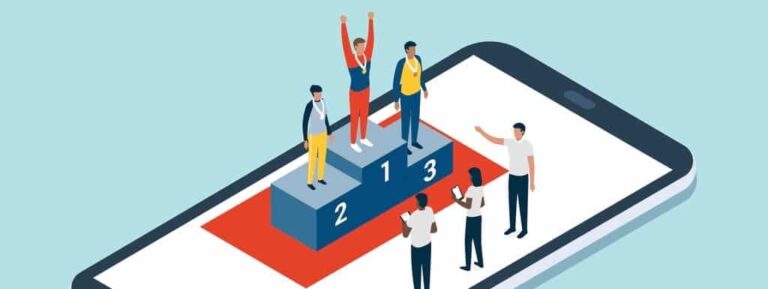Storytelling is a very old habit mankind developed over thousands of years. In those years when writing simply had not existed all we could rely on was stories.
Times have changed since then, but storytelling is here to stay, and it still plays a dominant role in our modern lives.
We all enjoy stories very much simply because they activate our brains. Boring facts, list of features, product descriptions won’t make you too excited.
If you have six minutes, I would advise you to check out this TED video below. It’ll help you understand the power of storytelling from a scientific perspective.
Okay we all agreed that storytelling is a powerful marketing tool. The question is how can you use it in your email marketing?
Create a likeable hero
We all have our favorite movies, and in most of them there’s a hero, a special person who we can relate to and who moves our hearts and minds easily.
I have to admit that it’s not easy to come up with a hero especially if you are into B2B. But it’s not impossible, and here are two ways you can do it.
Tell your own story and make yourself the hero
It can easily work, if you have a personal brand or you are the face of a small business.
Simply by telling your personal story you can show your clients that you are one of them. You are a feeling, breathing, living person, who had his own successes and failures.
This kind of storytelling can only work if you market to similar people like you.
For example it makes sense for a retired business woman, with two kids to tell her life story on her blog if she’s selling quality household apparel to middle aged women with kids.
But if you have a large offering or you are selling to different personas, you should always focus on them, instead of you.
Make one of your clients the hero
If you have a couple of clients who simply adore your product or service, why not make them the hero?
Their personal stories will attract like-minded people, who can resonate hopefully not only with that person but with your product as well.
This is exactly what Groove does with Allan Branch, one of their loyal customers.

Image source: Groovehq.com
They use Allan’s video and written testimonials all around their website and in some email communications as well.
What’s the benefit for Allan? You might ask.
He is the co-founder of a related business which markets to similar people as Groove does. So through his testimonials he can spread the word about his own product likewise.
Don’t be afraid to ask for testimonials from any of your customers. Many of them will be open to help you, if they truly love your product.
If not, they won’t even bother with getting back to you… but that’s bad news anyways.
Add an antihero
You already have a hero, why not add an antihero? Somebody who wants your adorable hero to fail in one way or another.
- If you are your own hero, a huge competitor could be your antihero.
- Your antihero doesn’t necessarily need to be a person, it can be a bad product, disappointing service or bad customer care. Whatever you can dress up as a negative character.
For example Indiemark created this poor template to attract people to their site and sell them email related software and services.

Think about your antiheroes, I’m sure you can come up with tons.
But beware, if your antihero is one of your competitors try not to offend them too much. You don’t want your antiheroes to become your enemies in life or business.
Show the journey
Life is a journey. Really it is. Just like for your hero.

No matter if the hero is you, one of your customers or a made up person(a).
They usually have to go through a series of challenges, roadblocks, failures and sufferings before they meet the desired goal.
Your narrative has to emphasize the pain that your product or service solves.
Your hero will be the one who goes through the hurdles and ends up finding your offering aka the perfect remedy.
Sounds easy right? Yes, it does but…
Storytelling is an art just like email copywriting
You need to practice and learn a lot before you would become a proficient storyteller.
There are many websites online where you can learn about storytelling in general, but only a few which help you improve your email copywriting skills.
One of my favorites’ is Copyhackers.com, where Joanna Wiebe teaches marketers different aspects of copywriting from email, to landing page, and so on. Great site with tons of free resources and videos.
There are many blog posts about email copywriting around the web, but it’s hard to find a resource which would guide you all the different copywriting aspects of email marketing.
This is the reason why we launched an article series which helps fellow marketers to learn the basics of email copywriting.
Actionable takeaways
- Regardless the topic of your email, try to incorporate a story to truly engage your readers.
- Focus your email around a single story. No more.
- Actively look for heroes from your audience.
- Present your product / service along the journey.
- Make it the ultimate solution for all the pain your hero suffered.
Are you still afraid of using stories in your emails?
I hope not, and now you feel that storytelling gives you the power to deeply activate the brains of your readers.







